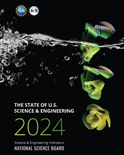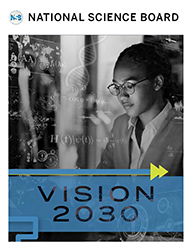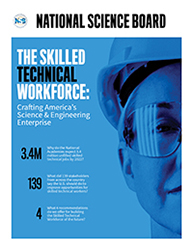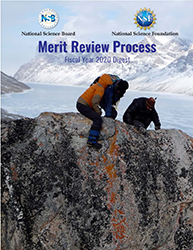News Release 14-060
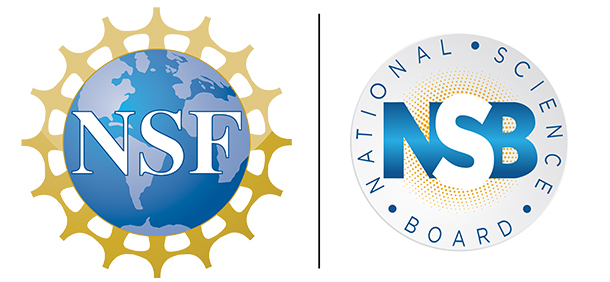
Excessive regulations turning scientists into bureaucrats
Increasing administrative requirements waste researcher time and taxpayer money

The NSB report recommends how to reduce principal investigators' administrative workloads. (Credit and Larger Version)
May 1, 2014
Excessive regulations are consuming scientists' time and wasting taxpayer dollars, says a report released today by the National Science Board (NSB), the policymaking body of the National Science Foundation and advisor to Congress and the President.
"Regulation and oversight of research are needed to ensure accountability, transparency and safety," said Arthur Bienenstock, chair of the NSB task force that examined the issue. "But excessive and ineffective requirements take scientists away from the bench unnecessarily and divert taxpayer dollars from research to superfluous grant administration. This is a real problem, particularly in the current budget climate."
Thousands of federally funded scientists responded to NSB's request to identify requirements they believe unnecessarily increase their administrative workload. The responses raised concerns related to financial management, grant proposal preparation, reporting, personnel management, and institutional review boards and animal care and use committees (IRBs and IACUCs).
Scientists and institutions pinpointed regulations they believe are ineffective or inappropriately applied to research, and audit and compliance activities that take away research time and result in university over-regulation.
"Escalating compliance requirements and inconsistent audit practices directly impact scientists and the time they have to perform research and train students and staff," said Kelvin Droegemeier, NSB vice chairman and a member of the task force.
The report, Reducing Investigators' Administrative Workload for Federally Funded Research, recommends limiting proposal requirements to those essential to evaluate merit; keeping reporting focused on outcomes; and automating payroll certification for effort reporting. The NSB further recommends an evaluation of animal research, conflict of interest, and safety and security requirements, and encourages universities to review their IRB and IACUC processes to achieve rapid approval of protocols.
The report cites a continued lack of consistency in requirements within and between federal agencies and recommends the creation of a permanent high-level, inter-agency, inter-sector committee. The committee would address the recommendations in the NSB and other reports; identify and prioritize, with stakeholder engagement, additional opportunities to streamline and harmonize regulations; and, help standardize the implementation of new requirements affecting investigators and institutions.
"Streamlining research regulations and making requirements more consistent across federal agencies is in the best interest of scientists and taxpayers," said Bienenstock.
About the National Science Board
The NSB is the policymaking body for the National Science Foundation. NSB also advises the President and Congress on science and engineering policy issues. The Board's 24 members are drawn primarily from universities and industry and represent a variety of science and engineering disciplines. Selected for their eminence in research, education or public service and records of distinguished service, Board members serve six-year terms. NSF's Director is an ex officio 25th member of the Board. Visit NSB's website for more information.
-NSF-
Related Websites
NSB Report: Reducing Investigators' Administrative Workload for Federally Funded Research: http://nsf.gov/publications/pub_summ.jsp?ods_key=nsb1418
Useful NSB Web Sites:
Home Page: http://www.nsf.gov/nsb
Media Contact: http://www.nsf.gov/staff/staff_bio.jsp?lan=nlymn&org=NSF
News: http://www.nsf.gov/nsb/news
Meetings: http://www.nsf.gov/nsb/meetings
Publications: http://www.nsf.gov/nsb/publications
Facebook: https://www.facebook.com/NationalScienceBoard
Twitter: Twitter: https://twitter.com/intent/user?screen_name=NSF_NSB
YouTube: https://www.youtube.com/channel/UCkrHRzuGSrPp2haQs0T_Pww
To view PDF documents, please download Adobe Acrobat Reader.
